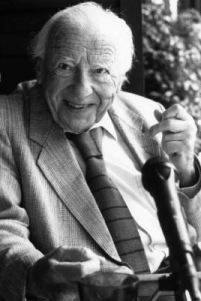Two questions: why is it so cold in here and why are we singing African-American spirituals seeing that everyone is English?
The following was my evening here in Oxford, an interesting combination of things you may or may not find on the other side of the pond.
1. Riding a bike in the rain - in Oxford no one really drives anywhere because pertol (gas) is too expensive even if the cars are the size of my shoe. Instead we ride bikes everywhere. This is quite a bizarre experience because I have never used a bike in any conditions which require multiple layers of clothing and winter gloves. Bike riding up until Oxford had been a summer occassion on a nice day and such. Here is is the main mode of transportation. This is especially fun and exciting when it is raining, which it does quite a lot here. Here's a picture of my bike:

So tonight I went to visit the church I am preaching at next week to scope out the surroundings and see what the congregation looked like. This meant a twenty minute bike ride in the dark in the rain, which was pretty cool to be honest. I haven't ridden much in the rain yet so it was new, but I imagine the novelty wears off and it becomes pretty wrecthed at some point. Hats off to the Wycliffe ordinands who do this every morning, I feel like I should make you guys a cup of tea or something.
2. Old English Parish Church - after ridding in the rain I had a nice cold and remote parish church to look forward to. It is always weird worshipping in a building that is older than the United States of America, but it seems to be holding together quite nicely. These old churches are great because apparently people in the 1600's had straight backs which fit quite nicely in these pews. And who said we don't have any signs of macro-evolution? So when the priest said "I want everyone to get comfortable" there was a restrained British laugh from the congregation. The service was really nice though, looked a lot like an American Episcopal Church with most of the congregation (about 25 people) a little over 25, shall we say. I felt pretty much at home there, especially when I heard the theme: Freedom. Here's a picture of the church. Imagine it dark and Englandy (how did that blue sky get in there?).

3. African-American Spirituals in an English Church? - so the theme of the service was Freedom and the music was mostly selected from African-American spirituals. Awesome! "Nobody knows the trouble's I've seen", and such. One slight problem though: the congregation is all older and British. Interesting. Spirituals take on a whole new meaning when "r's" are added to the end of words ending in "a" and when no one can sing lower than tenor. Imagine a chain gang breaking for a cup of tea and a biscuit and you just about have it. These people were born to sing Southern Gospel:
 I shouldn't make a fuss about it though since I am sure it is just as weird to hear my Northern American accent pronounce the Old English of the Book of Common Prayer. I love the Old English but I am sure my friends here are doing everything they can to keep from putting their hands over their ears as I mutilate various english words, like "inestimable." Seriously, you try and pronounce it. It almost needs an English accent.
I shouldn't make a fuss about it though since I am sure it is just as weird to hear my Northern American accent pronounce the Old English of the Book of Common Prayer. I love the Old English but I am sure my friends here are doing everything they can to keep from putting their hands over their ears as I mutilate various english words, like "inestimable." Seriously, you try and pronounce it. It almost needs an English accent.
So it was an interesting experience, and after a nice windy bike ride back I settled down to the only way an American in England can finish the day: a Twix bar with a cup of tea.


